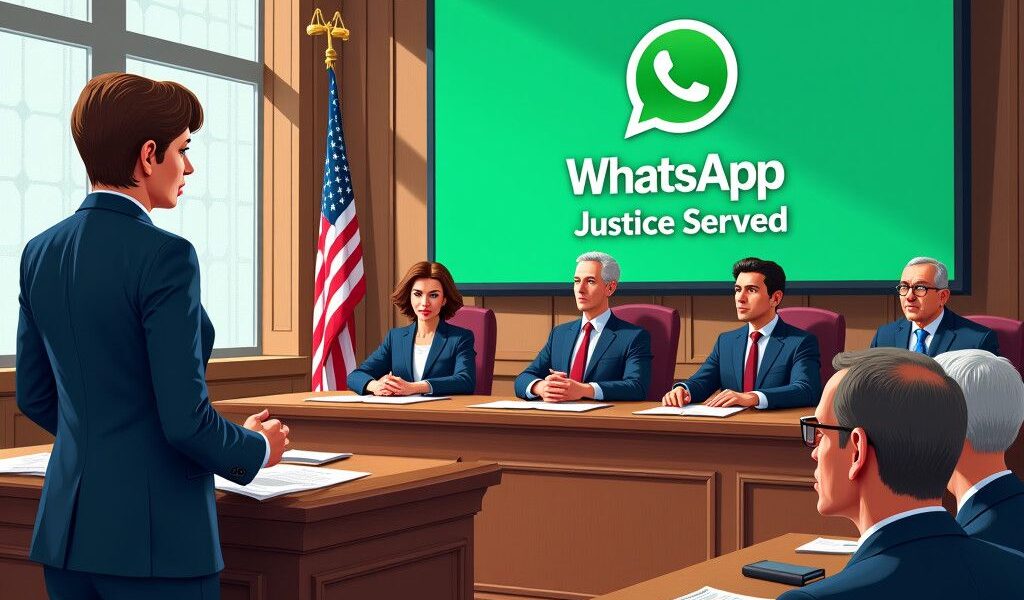WhatsApp Wins Case as US Judge Rules Against NSO Group
In a notable legal victory, WhatsApp recently celebrated a significant court ruling against the NSO Group, a controversial Israeli cybersecurity firm. A US judge declared NSO Group liable for hacking in connection with a case brought by WhatsApp, which accuses the firm of facilitating widespread violations of user privacy and exploiting weaknesses in their system. This ruling not only underscores the fight against cybersecurity threats but also sets a precedent regarding corporate accountability in the digital realm.
The lawsuit, initiated in 2019, arose after NSO Group allegedly exploited a vulnerability in WhatsApp that allowed hackers to install surveillance software on users’ phones without their knowledge. The breach reportedly impacted around 1,400 WhatsApp users, including journalists, activists, and human rights defenders. WhatsApp’s case against NSO Group argued that the hacking was not just a simple intrusion but a blatant attempt to undermine privacy and security standards that are critical to protecting users.
The ruling by the US District Judge Phyllis Hamilton highlighted the potential harm caused by such breaches and emphasized that companies like NSO must be held accountable for their actions. In her decision, Judge Hamilton stated, “When companies buy hacking tools, they must do so with the consideration of how those tools will be used and the potential for harm.” This statement reflects a growing recognition of the responsibilities that come with technology in an increasingly interconnected world.
What makes this case particularly significant is the broader implications it has on the relationship between technology firms and user privacy. In a landscape where cyber threats are rampant, the ruling could encourage other tech companies to take a more proactive stance in securing their platforms and protecting user data. It also raises questions about the practices of cybersecurity firms and their ethical responsibilities, especially when their products end up in the hands of oppressive regimes or used for malicious purposes.
Moreover, NSO Group’s defense centered around the assertion that its software, Pegasus, is used by government clients to fight crime and terrorism, thereby justifying its actions. However, the ruling challenges this perspective by highlighting the potential misuse of these tools and the devastating consequences that can arise from unchecked surveillance practices. Critics argue that the line between lawful surveillance and invasion of privacy is often blurred, and cases like this expose the dangers of such ambiguity.
The ruling serves as a wake-up call for both the cybersecurity industry and legal frameworks surrounding digital privacy. It pushes for clearer regulations and stronger accountability measures that demand transparency from firms like NSO Group. As societies increasingly rely on digital communication tools, the need for stringent protections regarding user privacy has never been greater.
Through this outcome, WhatsApp aims not only to seek damages but also to spark a more extensive dialogue about the ethical implications of hacking tools in today’s digital economy. The case exemplifies a turning point where privacy rights are prioritized, and the actions of entities involved in cybersecurity are scrutinized more rigorously.
The damages trial is anticipated to further explore the financial repercussions for NSO Group, as well as the potential for reparations for the affected users. As the case unfolds, it is bound to captivate the attention of industry stakeholders, privacy advocates, and legal experts alike.
In conclusion, WhatsApp’s victory over NSO Group is more than just a legal triumph; it reflects the ongoing struggle for user privacy rights in a digital age fraught with challenges. The case emphasizes the vital need for companies to uphold ethical standards and for the legal system to address the complexities inherent in protecting digital privacy. With growing global concerns about surveillance and data security, this ruling could indeed be a catalyst for change in how the technology and cybersecurity industries approach their responsibilities.








